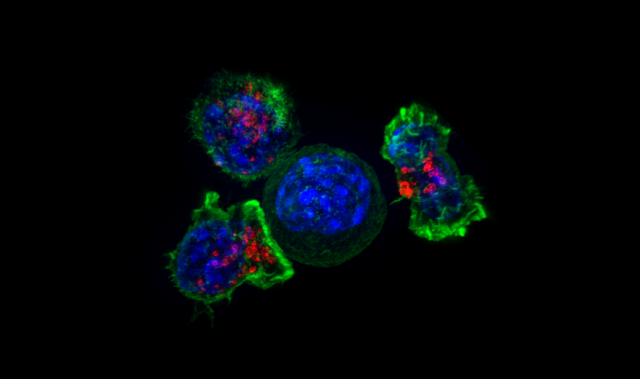
AsianScientist (Dec. 16, 2014) – If you haven’t already heard, an obscene amount of money has changed hands for the 1962 Nobel Prize to remain in the possession of James D. Watson, famously known for discovering the structure of DNA and more recently, making off-color remarks on fields outside his expertise.
While Watson may well be the first living Nobel laureate to sell off his medal, the idea is not entirely original. Chronologically, he was beaten to the punch by 1962 co-awardee Francis Crick, whose family posthumously sold his medal in 2013 for US$2.3 million.
However, Watson’s medal did beat Crick’s on price, going at US$4.1 million (US$4.8 million, if you include the fees paid to auction house Christie’s). Even better though, is that he gets to have his cake and eat it too, having been returned the medal by the buyer, Russian multi-billionaire Alisher Usmanov.
Perhaps it is somewhat fitting that Usmanov became involved in the Watson affair, considering how Alfred Nobel himself was an industrialist who had similarly made his wealth in metals and mining. A chemist, inventor and businessman, Nobel was a man of contradictions who could reconcile at once being both a pacifist and a major weapons manufacturer. The fruit of his enormous wealth, the eponymous Nobel Prize now represents the pinnacle of achievement for many scientists.
What is a Nobel Prize really worth?
Each Nobel Laureate receives a diploma, a gold medal and a share of the SEK8 million (~US$1 million) prize. But more than monetary value, Nobel Prize winners receive worldwide recognition, becoming the envy of their peers.
When the three year old granddaughter of 2008 Laureate Professor Harald zur Hausen heard that he had won the prize, she burst out in tears saying that she wanted one too. Commenting on the story, a colleague told zur Hausen, “Your granddaughter expressed the desire of a multitude of scientists; except that they usually don’t cry in public and are reluctant to talk about it.”
Non-scientists instantly recognize the significance and prestige of the Nobel Prize, even if they might be hard pressed to name you any of the winners in Physics, Chemistry and Physiology or Medicine.
Watson and Crick, however, are the exception to the rule, having joined the exclusive club of ‘scientific heroes’; scientists who have become household names. Sparsely populated by greats such as Albert Einstein and Marie Curie, these scientists, rightly or wrongly, have come to define popular culture’s idea of what it means to succeed at science.
Scientists as celebrities
One of the strange things about becoming a science celebrity is that everyone suddenly wants your opinion, even on topics completely unrelated to your field of expertise. While no one expects a plumber to also be able to fix their TV, people seem to expect scientists to know everything there is to know about science.
The trouble is that the glow of celebrity is not instant credibility, especially for areas outside a person’s expertise. In the case of Watson, his insight on the structure of DNA does not immediately qualify him as an expert on population genetics. Sadly, that has not stopped his “unconventional racism” from lending support to Nicholas Wade’s A Troublesome Inheritance, a book which has since been protested by over 130 geneticists who say that Wade misrepresented their research.
But really, it shouldn’t surprise us that our scientific heroes come with troublesome ideas. Even Linus Pauling, the only person to win two unshared Nobel Prizes, fell prey to Nobel Disease, promoting the questionable benefits of high-dose vitamin C for anything from cancer to the common cold at the end of his career. Nonetheless, his vitamin C theory does not detract from his seminal contributions to molecular biology and chemistry.
The Watson affair reminds us yet again that great scientists can also occasionally have less than desirable views or personalities. In other words, scientists are human too, in both the good and bad senses of being human. While the great thing about science is that a discovery is true no matter who made the discovery, we should not let achievement make us gloss over or ignore the more troublesome aspects of our scientific heroes.
This article is from a monthly column called From The Editor’s Desk(top). Click here to see the other articles in this series.
—–
Copyright: Asian Scientist Magazine; Photo: Science Museum London/Flickr/CC.
Disclaimer: This article does not necessarily reflect the views of AsianScientist or its staff.













